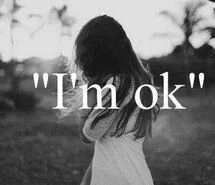Finding the Light
As this year has felt unexpectedly dark, due to the pandemic - among many other global and local things - I’ve found myself really looking forward to Hanukkah this year.
Usually, for my family, Hanukkah comes in the context of our annual trip to Florida where we do and see the same things we’ve done and seen for the last decade, at least. Our traditions are set in stone and it feels at once like an adventurous vacation and a warm cocoon where everything is safe and expected.
My family’s usual travel plans have been ruined - like basically everyone’s - and it feels so strange to me to look back on the blog I wrote last year about how I loved the comfort in consistency that I found in the trip each year. It seems like last year’s world was a completely different place, and there are so many things now that I could never have imagined.
Strangely enough, however, I find myself looking forward to Hanukkah not as a break from a dismal world but as a continuation of the love and comfort I’ve experienced with my family these last few weeks. Ever since I returned home after Chicago’s second lockdown, I have experienced all the same things I love the most about my family’s annual trip, even if we’re not actually there.
Instead of the trip I’ve always loved, I am getting to spend time with my parents in the everyday sort of way I’ve missed so much since I left for college. Every moment with Nana means so much more when there are things we can’t do, like hug. But even if we’re sitting six feet apart with masks on, it still feels like we’re bonding just as close as always. Even if we’re not dipping our toes in the sand or eating my favorite French fries (with a fork!), we are enjoying the togetherness of family for a duration unlike anything I’ve been able to experience before.
This happiness, however, is mingled with various fears. My family and I are still very afraid of the virus, of the state of things in the country, and a world not operating by its normal rules. But even though I’m afraid of all these things - and more - I plan to light my Hanukkah candles this year with hope in my heart. Even if the light of the candles is shining on my old kitchen table instead of a Floridian beach, and even if my family is standing six feet apart, we can still bring light to dark times both literally and metaphorically.
At times like this when the world feels overwhelming, I like to think of one of my favorite quotes of all time, from the Lord of the Rings movie trilogy (big surprise there!). At a particularly hard time for Frodo towards the end of The Two Towers, Sam offers these words of wisdom that I hang around my walls and save on my computer and remind myself of whenever times are bad:
“It’s all wrong.
By rights we shouldn’t even be here. But we are.
It’s like in the great stories, Mr. Frodo. The ones that really mattered.
Full of darkness and danger they were, and sometimes you didn’t want to know the end. Because how could the end be happy? How could the world go back to the way it was when so much bad happened?
But in the end, it’s only a passing thing, this shadow. Even darkness must pass.
A new day will come. And when the sun shines it will shine out the clearer.
Those were the stories that stayed with you. That meant something. Even if you were too small to understand why. But I think, Mr. Frodo, I do understand. I know now.
Folk in those stories had lots of chances of turning back only they didn’t. Because they were holding on to something.”
As the pandemic drags on into the dark days of winter, it’s more important than ever to find time for self-care and adapting beloved family and holiday rituals to the new normal. It may be stressful and difficult, but in the end, I believe that - just like Samwise Gamgee said - the sun will shine out the clearer, and finding our own light this Hanukkah is a wonderful way to start finding the light in the world beyond our front doors.
Ellie, a writer new to the Chicago area, was diagnosed with OCD at age 3. She hopes to educate others about her condition and end the stigma against mental illness.






